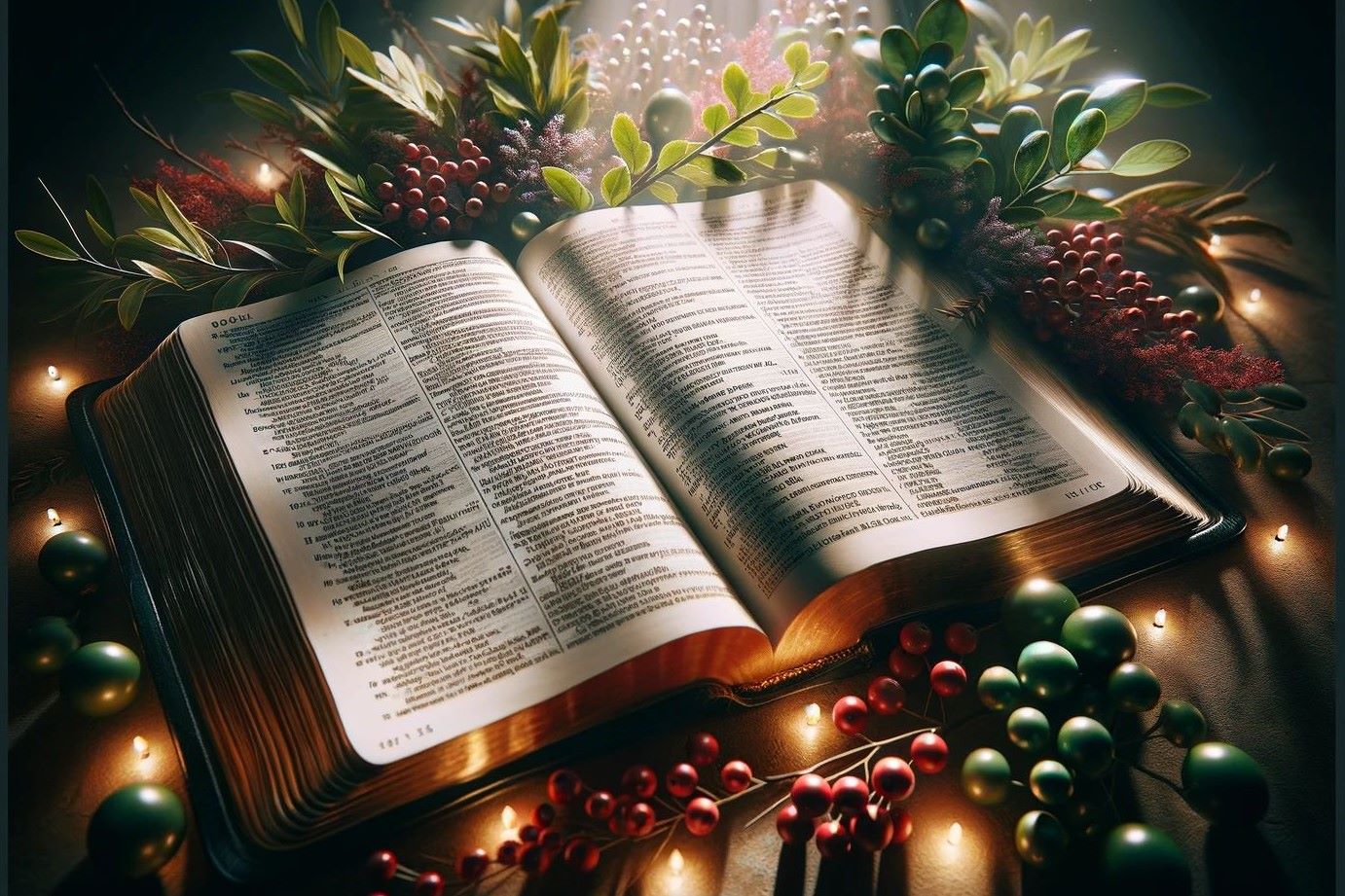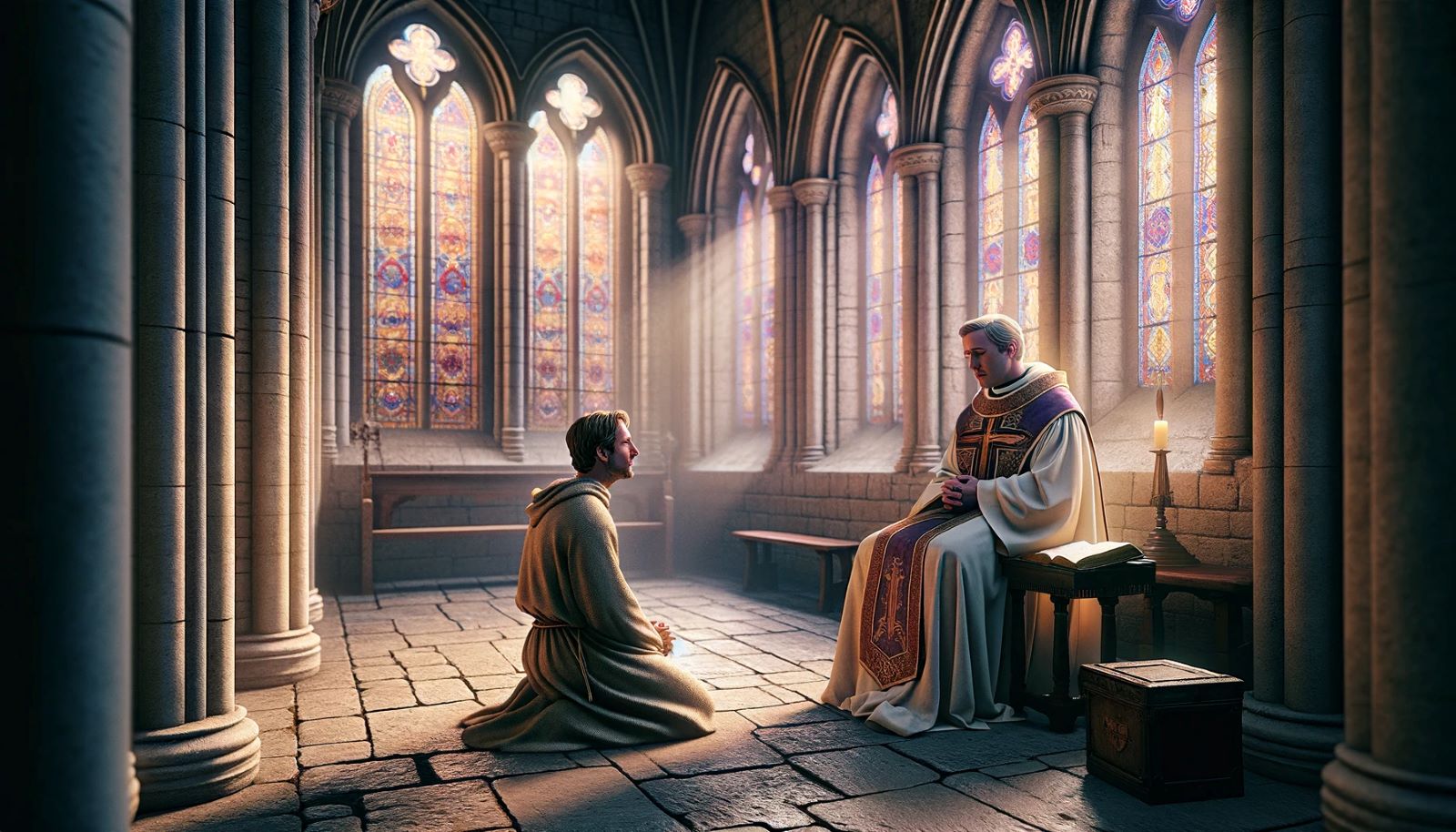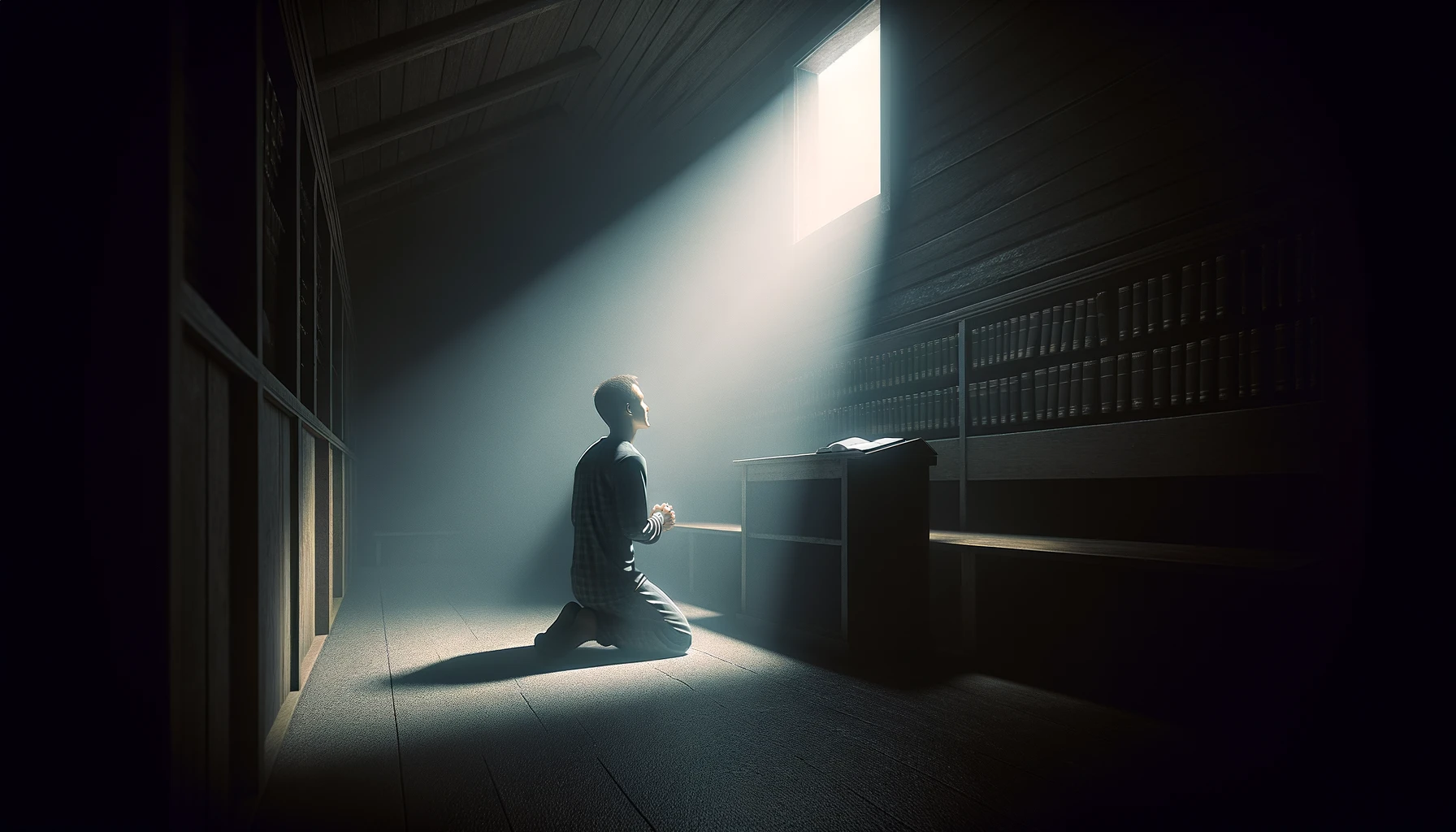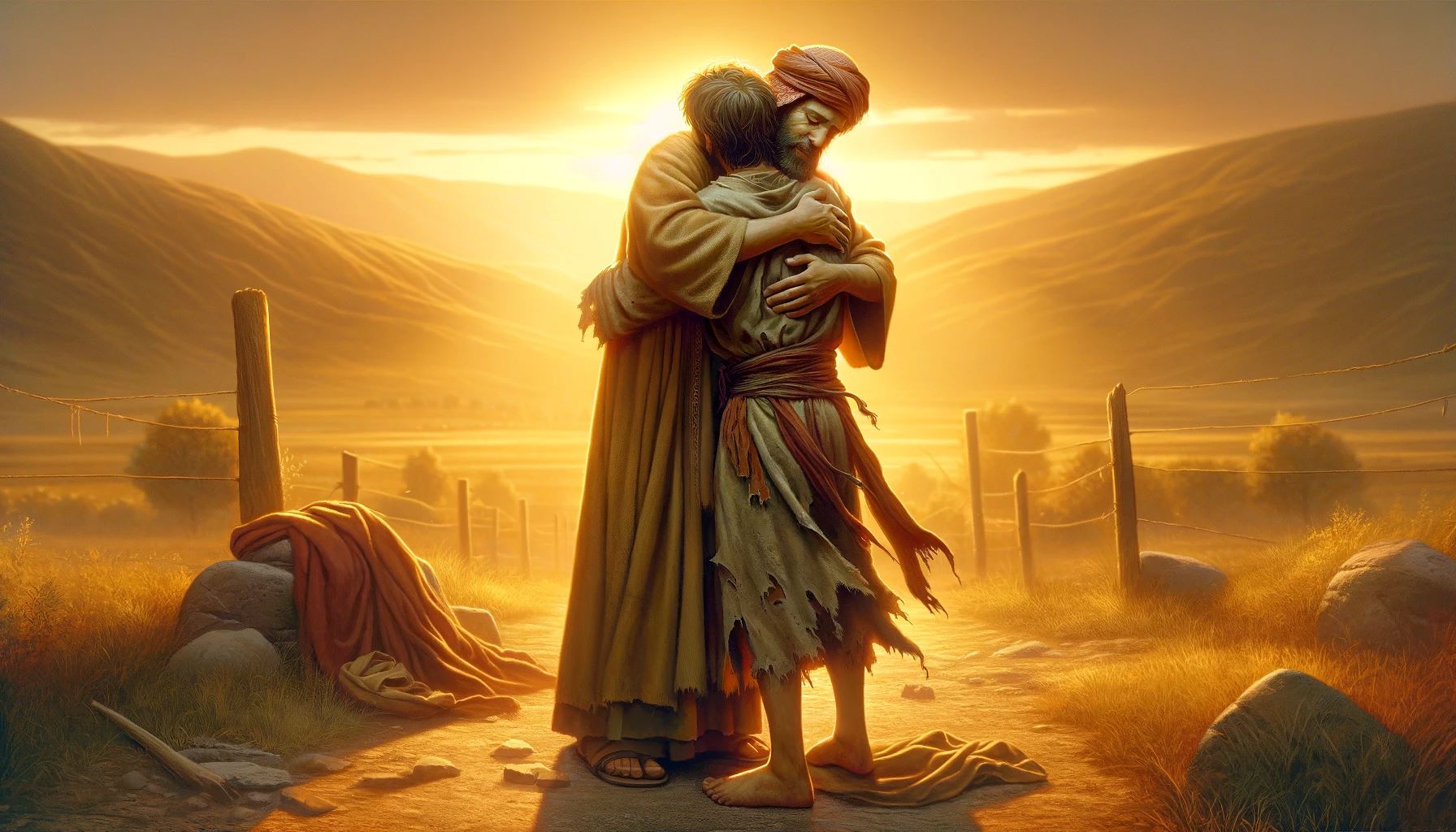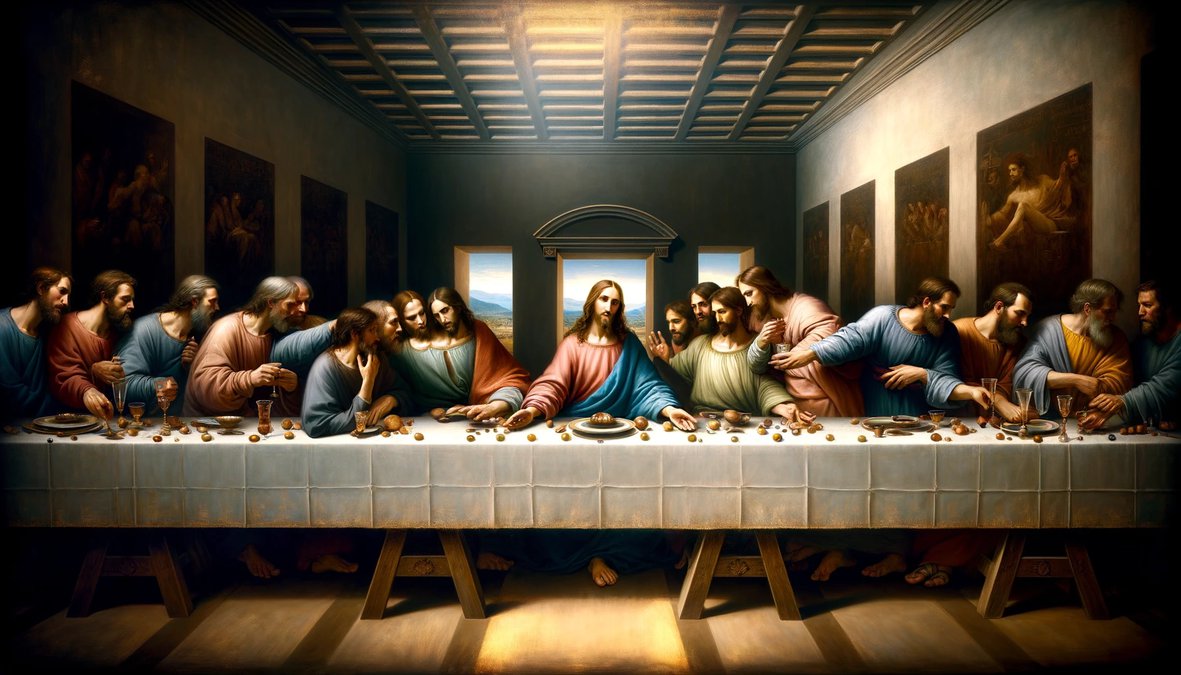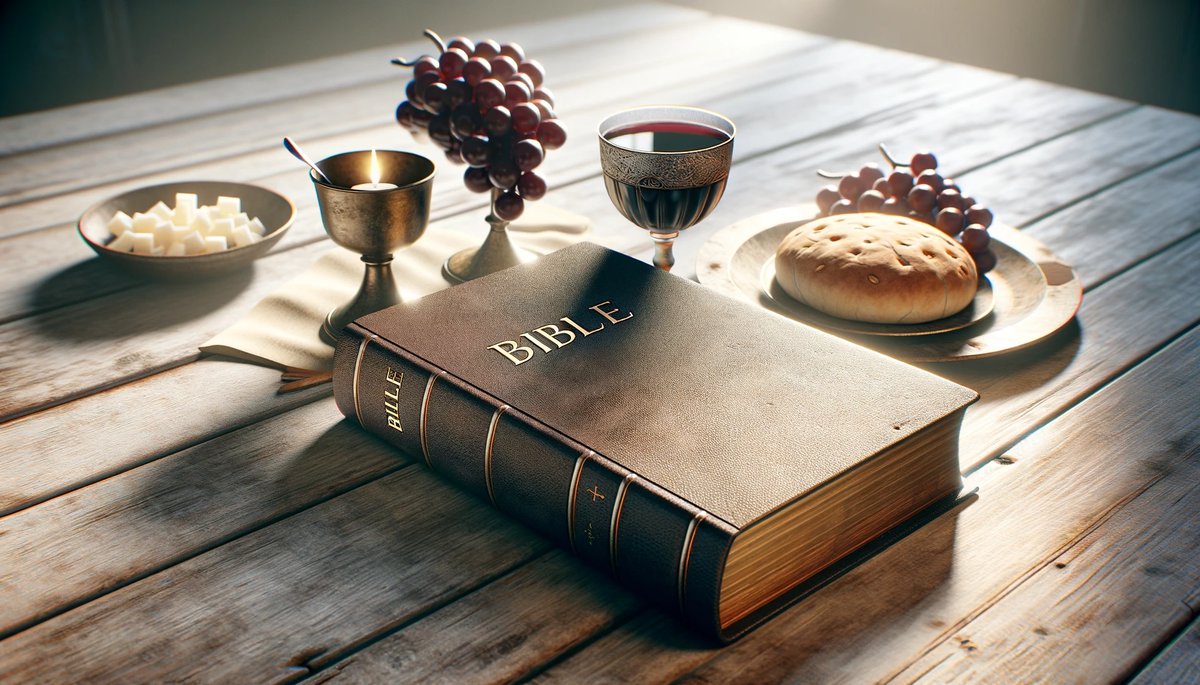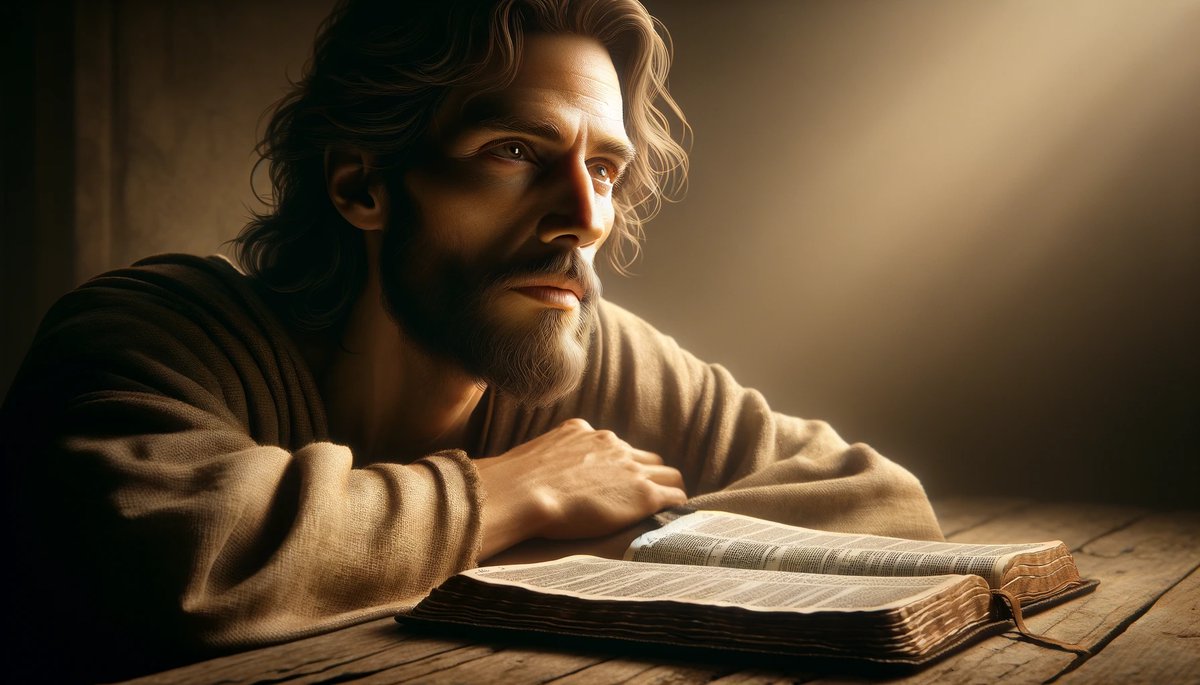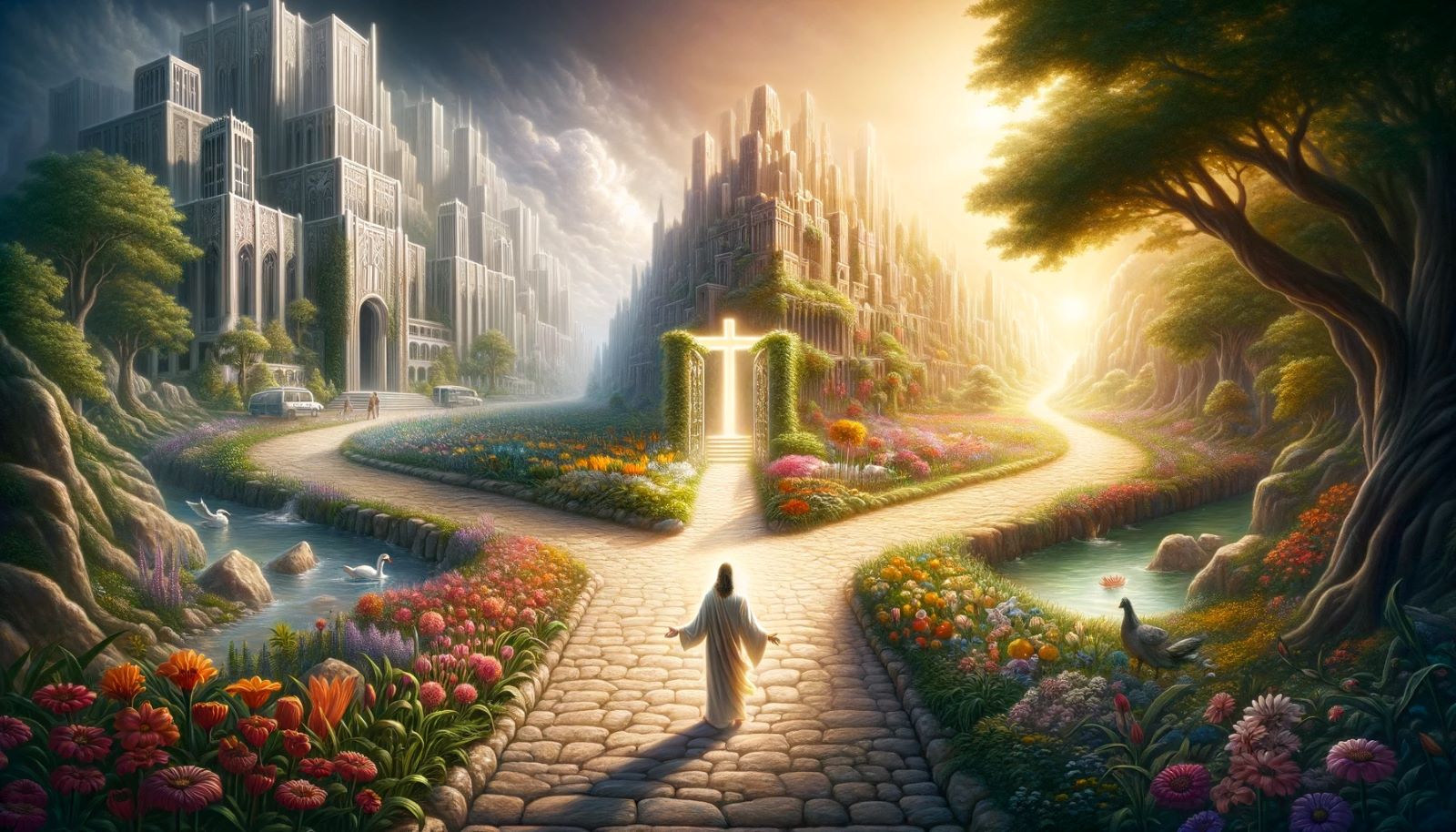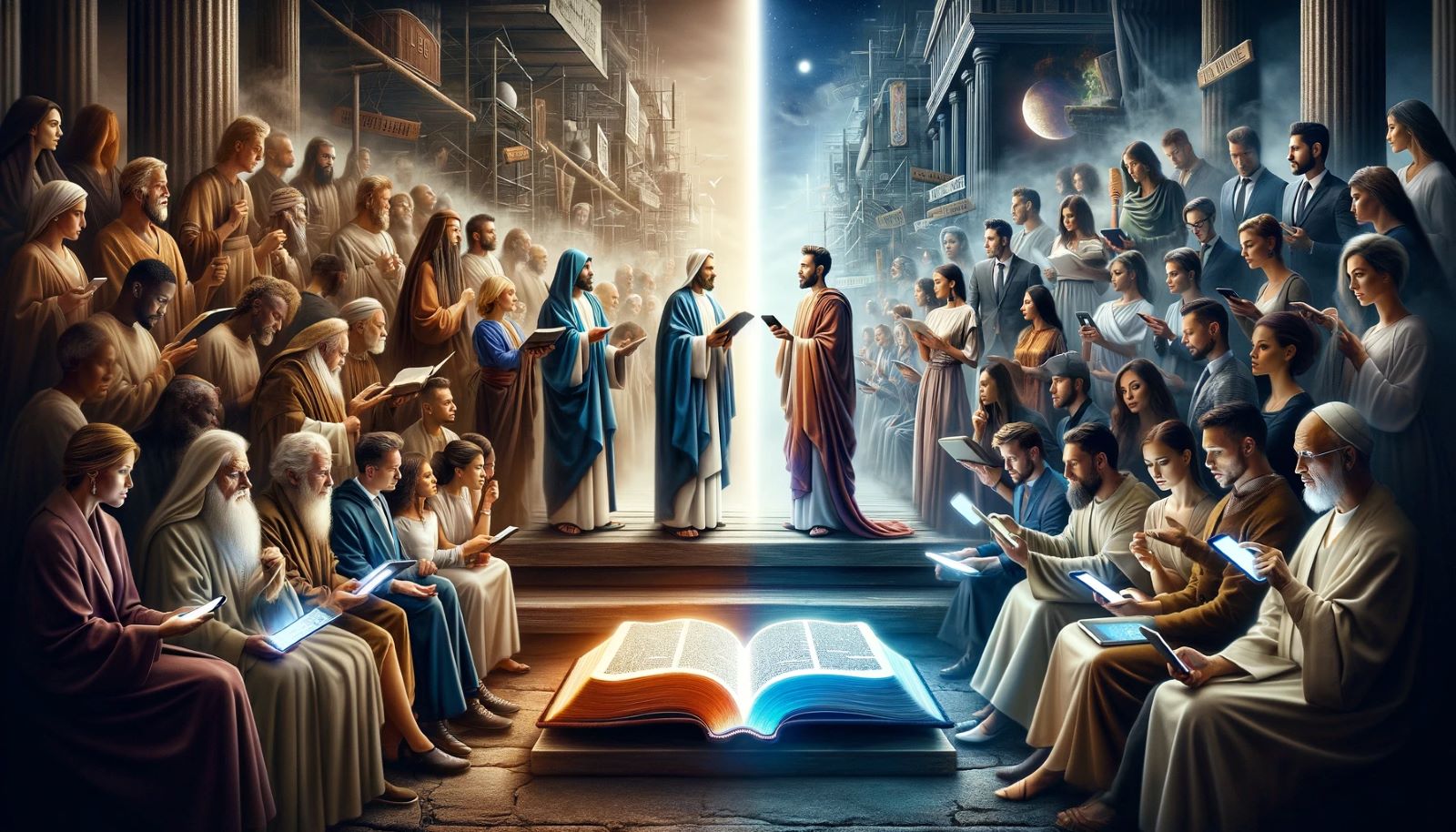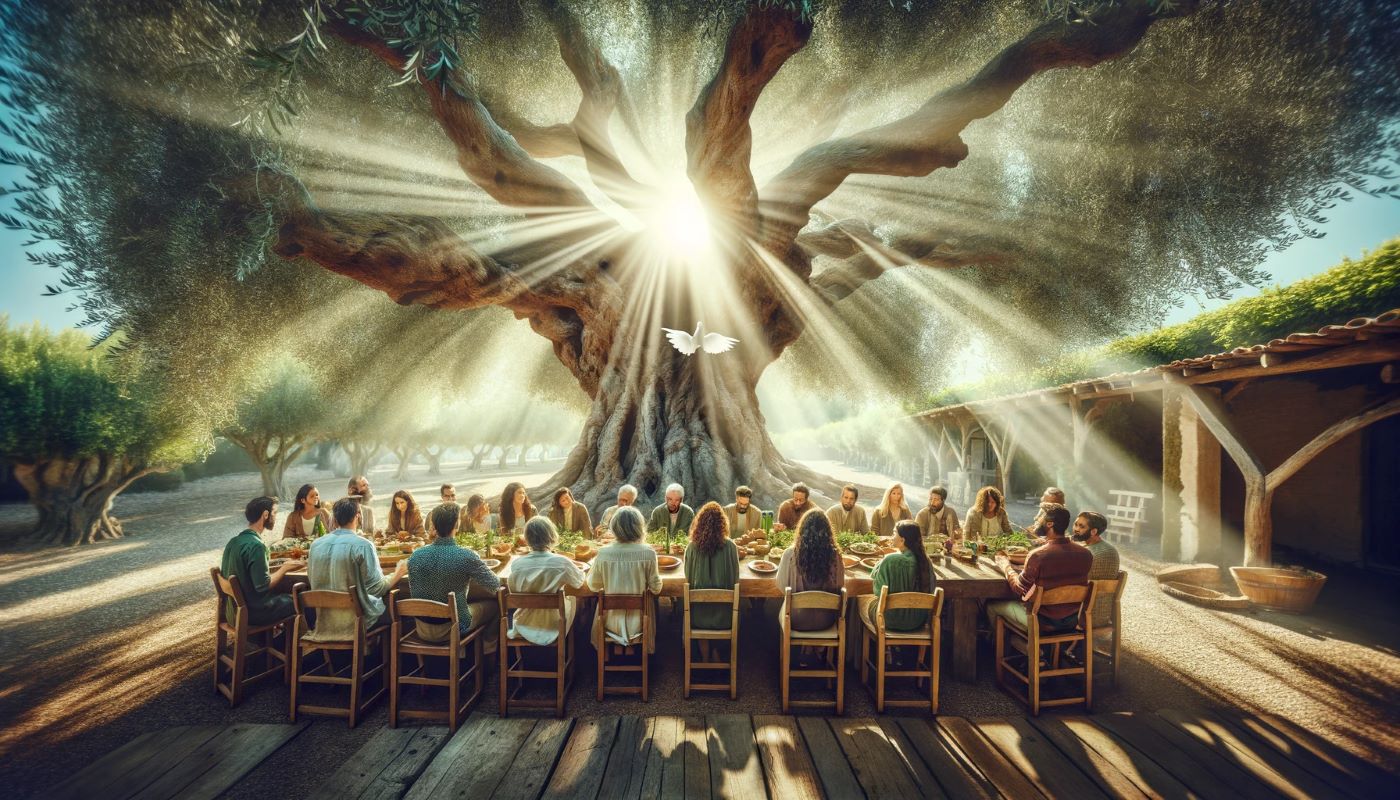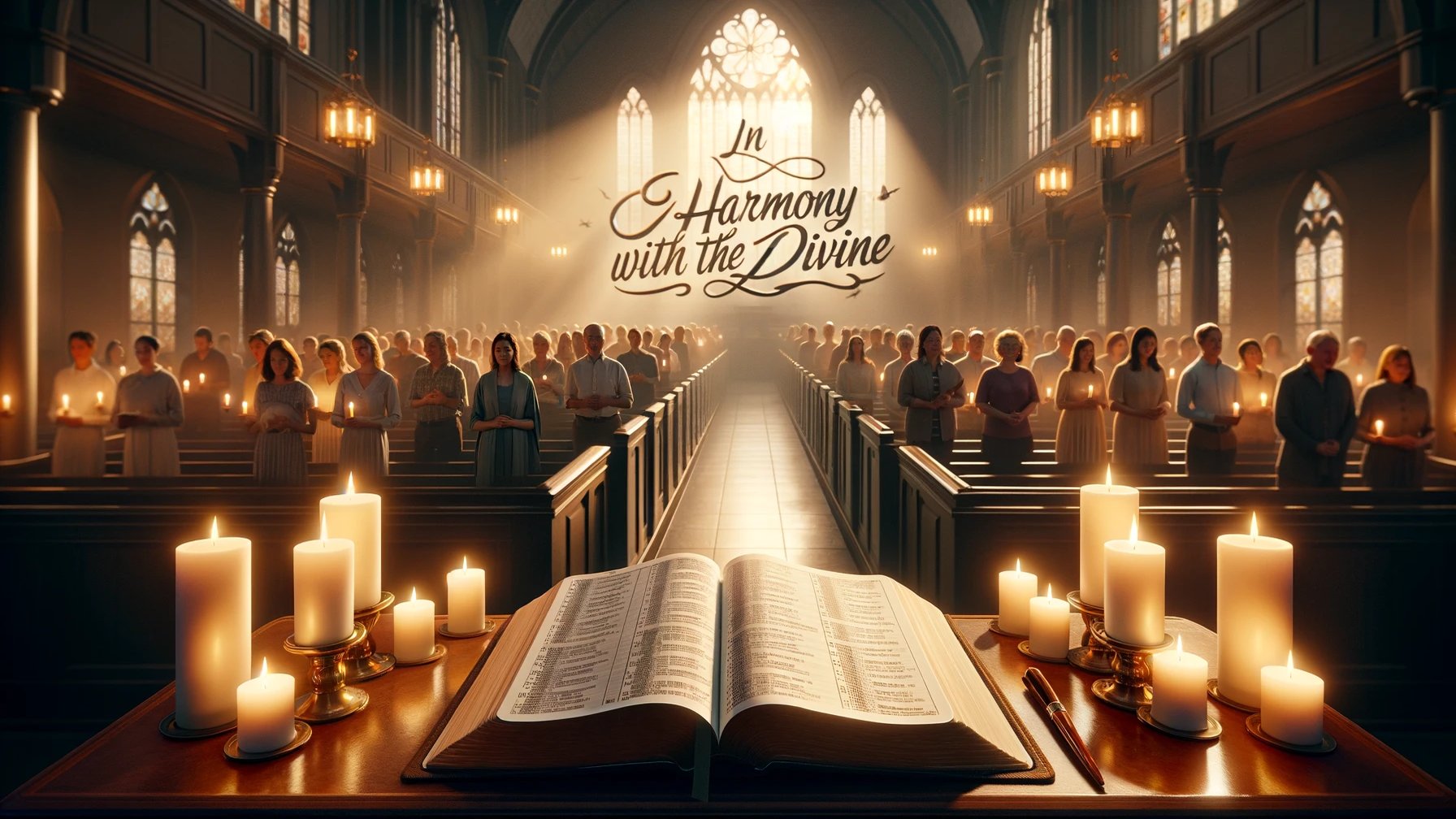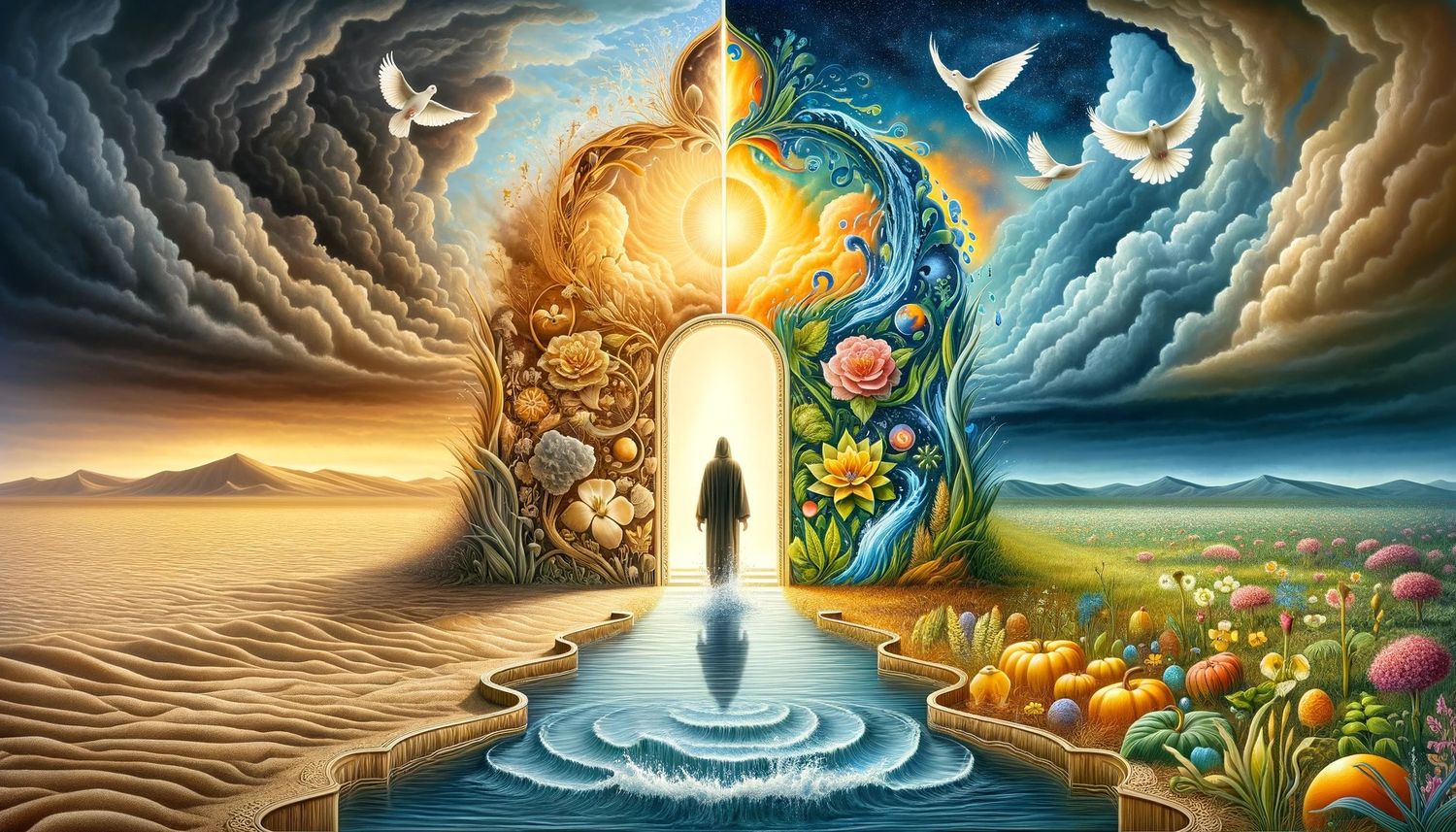Home>Theology and Spirituality>What Does The Bible Say About Catholicism
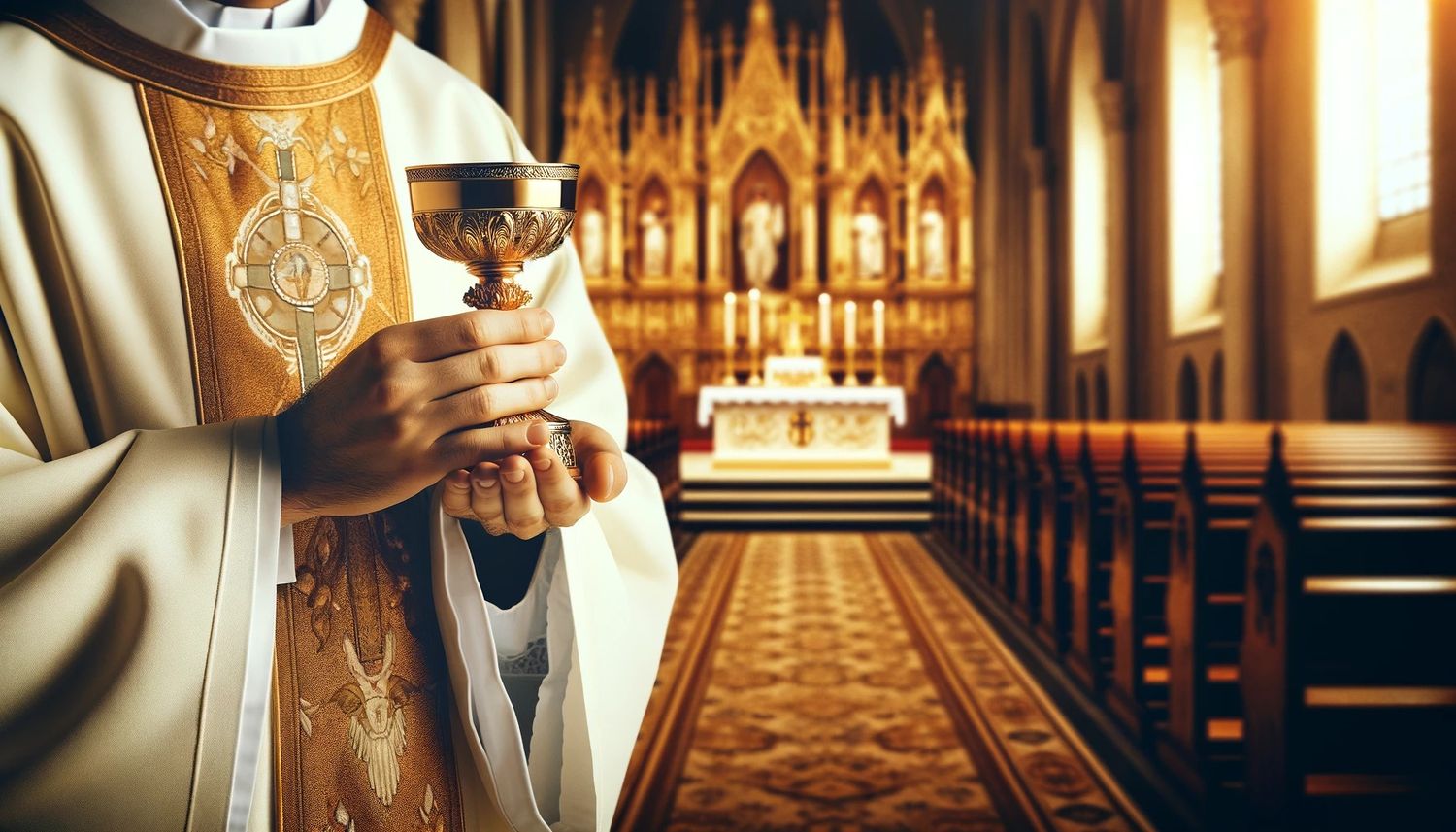

Theology and Spirituality
What Does The Bible Say About Catholicism
Published: February 17, 2024
Ericka Andersen, an editor at Christian.net, expertly merges digital strategy with content creation, focusing on faith and societal issues. Her communication skills enhance the platform's engaging narratives, fostering meaningful dialogue on belief's impact on society.
Discover what the Bible says about Catholicism and explore the theological and spiritual aspects of this faith. Gain insights into the intersection of theology and spirituality.
(Many of the links in this article redirect to a specific reviewed product. Your purchase of these products through affiliate links helps to generate commission for Christian.net, at no extra cost. Learn more)
Table of Contents
Introduction
Catholicism, one of the oldest and most widespread branches of Christianity, has a rich history and a profound influence on global culture and spirituality. Rooted in the teachings of Jesus Christ and the apostles, Catholicism has evolved over two millennia, shaping the beliefs, traditions, and moral framework of millions of adherents worldwide.
From the majestic cathedrals of Europe to the humble parish churches in remote villages, the presence of Catholicism is deeply ingrained in the fabric of human civilization. Its impact extends beyond religious rituals, permeating art, literature, music, and social ethics. Understanding the core tenets of Catholicism is not only a matter of religious study but also a gateway to comprehending the historical and cultural tapestry of numerous societies.
In this comprehensive exploration, we will delve into the fundamental aspects of Catholicism, examining its history, beliefs, practices, and controversies. By shedding light on the essence of Catholicism, we aim to provide a nuanced understanding of this ancient faith tradition and its significance in the contemporary world. Let us embark on a journey through the annals of time and faith, unraveling the profound mysteries and enduring truths that define Catholicism.
Read more: What Does Catholicism Say About Dinosaurs
History of Catholicism
The history of Catholicism is a tapestry woven with the threads of ancient traditions, theological controversies, and profound spiritual insights. Its origins can be traced back to the time of Jesus Christ and the early Christian communities. The term "Catholic" itself is derived from the Greek word "katholikos," meaning "universal," reflecting the inclusive nature of the faith.
The foundational narrative of Catholicism centers on the life and teachings of Jesus Christ, whose ministry in the 1st century laid the groundwork for the Christian faith. According to Catholic doctrine, Jesus appointed the apostle Peter as the leader of the Church, bestowing upon him the keys to the kingdom of heaven. This event is pivotal in Catholic history, as it forms the basis for the doctrine of papal primacy, emphasizing the authority of the Bishop of Rome, or the Pope, as the successor of Peter.
In the centuries following the death of Jesus, the early Christian community faced persecution and internal doctrinal disputes. However, the conversion of Emperor Constantine to Christianity in the 4th century marked a significant turning point. This event led to the legalization of Christianity and the convening of the Council of Nicaea, which addressed theological controversies and laid the groundwork for the Nicene Creed, a statement of faith that remains central to Catholic liturgy.
The subsequent centuries witnessed the expansion of Christianity across Europe, with the Bishop of Rome assuming a prominent role in the ecclesiastical and political affairs of the continent. The crowning of Charlemagne as Holy Roman Emperor in 800 further solidified the intertwining of spiritual and temporal power in medieval Europe, shaping the identity of Catholicism as a unifying force in the midst of political upheavals and cultural transformations.
The medieval period also saw the flourishing of monasticism, the establishment of universities, and the rise of scholastic theology, exemplified by the works of luminaries such as St. Thomas Aquinas. The Renaissance and the Age of Exploration brought new challenges and opportunities for the Catholic Church, as it grappled with the forces of humanism, scientific inquiry, and global encounters.
The history of Catholicism is a saga of resilience, adaptation, and renewal, marked by moments of triumph and tribulation. It is a testament to the enduring impact of faith on the course of human history, shaping societies, inspiring artistic achievements, and fostering a sense of communal belonging that transcends geographical boundaries and cultural differences.
Catholic Beliefs and Practices
Catholicism encompasses a rich tapestry of beliefs and practices that form the spiritual foundation of its adherents. At the core of Catholic faith is the belief in the Holy Trinity: the Father, the Son (Jesus Christ), and the Holy Spirit. This triune nature of God underscores the central mystery of the Christian faith and serves as the theological bedrock of Catholicism.
The veneration of Mary, the mother of Jesus, holds a significant place in Catholic devotion. Mary is revered as the Theotokos, the Mother of God, and her intercessory role in the spiritual lives of believers is a distinctive feature of Catholic piety. The recitation of the Rosary, a form of prayer that meditates on the life of Jesus and Mary, is a cherished tradition among Catholics worldwide.
The sacramental life of Catholicism is embodied in the seven sacraments: Baptism, Confirmation, Eucharist, Penance, Anointing of the Sick, Holy Orders, and Matrimony. These sacred rites serve as visible signs of God's grace, marking key moments in the journey of faith and fostering a deep sense of spiritual communion within the community of believers.
The Eucharist, also known as the Holy Communion, occupies a central place in Catholic worship. The belief in the real presence of Christ in the consecrated bread and wine underscores the profound mystery of the Eucharist, which is celebrated in the Mass, the principal act of Catholic worship. The liturgical calendar, with its cycle of feasts and seasons, provides a rhythm of spiritual reflection and celebration, inviting believers to enter into the sacred mysteries of salvation history.
Catholic moral and social teachings encompass a wide range of ethical principles, addressing issues such as human dignity, social justice, and the sanctity of life. The encyclicals and pastoral letters of the Popes, along with the teachings of the Magisterium, offer guidance on matters of personal conduct, societal responsibilities, and global solidarity, reflecting the Church's commitment to fostering a just and compassionate world.
The devotion to saints, the practice of pilgrimage, and the rich tradition of sacred art and music further enrich the spiritual landscape of Catholicism, creating a vibrant tapestry of faith expressions that resonate across diverse cultures and historical epochs.
In essence, the beliefs and practices of Catholicism encapsulate a profound vision of the human-divine encounter, inviting believers to embrace the transformative power of faith, participate in the sacramental life of the Church, and embody the values of compassion, justice, and solidarity in the world.
The Role of the Pope
The Pope, as the Bishop of Rome and the spiritual leader of the Catholic Church, occupies a central and distinctive role in the ecclesiastical hierarchy. According to Catholic doctrine, the Pope is considered the successor of the apostle Peter, to whom Jesus entrusted the keys of the kingdom of heaven. This belief forms the basis for the doctrine of papal primacy, emphasizing the Pope's authority as the Vicar of Christ on earth.
The Pope serves as the visible head of the Church, embodying the unity of the worldwide Catholic community and providing pastoral guidance to its members. His authority extends to matters of faith and morals, and his teachings are regarded as infallible when speaking ex cathedra on issues of doctrine and dogma. This charism of infallibility underscores the belief in the Pope's role as the custodian of the Church's teachings, ensuring doctrinal coherence and continuity across generations.
In addition to his doctrinal authority, the Pope plays a crucial role in fostering ecumenical dialogue and interfaith relations, seeking to promote understanding and cooperation among diverse religious traditions. His efforts to engage in constructive dialogue with other Christian denominations and non-Christian faiths reflect the Church's commitment to pursuing unity and peace in a world marked by religious diversity.
The Pope also exercises pastoral care for the universal Church, addressing the spiritual needs of Catholics worldwide and providing moral guidance on contemporary issues. His encyclicals, apostolic exhortations, and homilies offer insights into the Church's stance on social, ethical, and theological matters, shaping the moral conscience of believers and influencing public discourse on critical issues.
Furthermore, the Pope serves as a symbol of continuity and tradition, embodying the historical legacy of the papacy and the enduring presence of the Church in the world. His role as a spiritual leader transcends geopolitical boundaries, resonating with Catholics and non-Catholics alike as a voice of moral authority and a proponent of global solidarity.
In essence, the role of the Pope in Catholicism encompasses spiritual, doctrinal, pastoral, and diplomatic dimensions, reflecting the multifaceted nature of his leadership within the Church and beyond. His influence extends far beyond the confines of Vatican City, shaping the collective identity and mission of the Catholic faith in the contemporary world.
The Sacraments in Catholicism
The sacraments hold a central position in the spiritual life of Catholicism, serving as visible signs of God's grace and channels of divine presence. Rooted in the teachings of Jesus Christ and the apostolic tradition, the sacraments embody the profound mysteries of faith and offer believers tangible encounters with the sacred.
Catholicism recognizes seven sacraments, each carrying its own significance and spiritual efficacy. These sacraments are Baptism, Confirmation, Eucharist, Penance, Anointing of the Sick, Holy Orders, and Matrimony. Each sacrament marks a pivotal moment in the believer's journey of faith, imparting grace and sanctifying the individual within the community of the Church.
The sacrament of Baptism, often referred to as the "door of the Church," initiates the individual into the body of Christ, cleansing them of original sin and bestowing upon them the status of a child of God. Confirmation, following Baptism, strengthens the recipient with the gifts of the Holy Spirit, empowering them to bear witness to the Christian faith and actively participate in the Church's mission.
The Eucharist, or Holy Communion, stands as the pinnacle of the sacramental life, wherein the faithful partake in the body and blood of Christ, experiencing a profound union with the Savior and with one another. Penance, also known as Reconciliation or Confession, offers the opportunity for spiritual healing and reconciliation with God and the Church through the confession of sins and the reception of absolution.
The sacrament of Anointing of the Sick provides comfort and grace to those facing illness or the frailty of old age, offering spiritual strength and the assurance of God's presence in times of vulnerability. Holy Orders, conferred upon deacons, priests, and bishops, mark the calling to serve the Church in ordained ministry, perpetuating the apostolic succession and shepherding the faithful in faith and sacraments.
Lastly, the sacrament of Matrimony sanctifies the union of spouses, inviting them to embody the love and fidelity of Christ for the Church, and to nurture a domestic church within their family.
The sacraments in Catholicism serve as sacred encounters with the divine, weaving together the threads of individual faith journeys with the communal tapestry of the Church's life. Through these tangible signs of grace, Catholics are invited to embrace the transformative power of God's love and to participate fully in the life of the faith community, fostering spiritual growth and communal solidarity.
Read more: What Does The Bible Say About Atonement
Catholicism and Salvation
In Catholic theology, the concept of salvation occupies a central and profound significance, reflecting the core of the Christian faith's redemptive narrative. Salvation, in the Catholic tradition, encompasses a multifaceted understanding that intertwines divine grace, human response, and the transformative journey towards communion with God.
At the heart of Catholic soteriology is the belief in the salvific work of Jesus Christ, whose life, death, and resurrection constitute the focal point of God's redemptive plan for humanity. The Incarnation, wherein the Son of God took on human flesh, signifies the divine solidarity with human existence, offering a pathway for reconciliation and restoration of the broken relationship between humanity and God.
Catholicism emphasizes the role of grace in the process of salvation, affirming that God's unmerited favor and transformative power enable individuals to respond to the call of faith and embark on the journey of spiritual renewal. The sacraments, particularly Baptism and Confirmation, are regarded as the means through which God's grace is imparted, initiating believers into the life of Christ and empowering them to live as witnesses to the Gospel.
The Catholic understanding of salvation encompasses both an individual and communal dimension, emphasizing the communal nature of the Church as the mystical body of Christ. Through active participation in the sacramental life, prayer, and acts of charity, believers are called to cultivate a life of holiness and virtue, contributing to the building of God's kingdom on earth.
Furthermore, Catholicism acknowledges the significance of human freedom and moral agency in the process of salvation. While God's grace is indispensable, individuals are called to cooperate with divine grace through acts of faith, repentance, and obedience to the teachings of Christ and the Church. The Catholic moral tradition, rooted in the Ten Commandments and the ethical teachings of Jesus, provides a framework for ethical living and spiritual growth, guiding believers in their pursuit of salvation.
The Catholic vision of salvation extends beyond individual redemption to encompass the renewal and transformation of the entire cosmos, reflecting the cosmic scope of God's salvific plan. The eschatological hope of the resurrection and the final consummation of all things in Christ inspires believers to live in joyful anticipation of the fulfillment of God's kingdom, wherein all creation will be reconciled and restored in harmony with its Creator.
In essence, Catholicism's understanding of salvation weaves together the threads of divine grace, human response, and communal participation, inviting believers to embrace the transformative journey of faith and to embody the values of love, justice, and solidarity in anticipation of the ultimate fulfillment of God's redemptive purposes.
Controversies and Criticisms
Throughout its long history, Catholicism has been the subject of various controversies and criticisms, reflecting the complex interplay between religious doctrine, institutional practices, and societal dynamics. These controversies have often sparked intense debates, internal reforms, and external scrutiny, shaping the evolving identity of the Catholic Church.
One of the enduring controversies that have confronted Catholicism is the issue of clerical abuse and the Church's response to allegations of misconduct by clergy members. Instances of sexual abuse of minors and vulnerable individuals by priests and other Church officials have deeply shaken the trust of the faithful and the public, leading to widespread condemnation and calls for accountability and transparency within the Church hierarchy. The handling of these cases, including the acknowledgment of past failures and the implementation of safeguarding measures, remains a point of contention and a catalyst for ongoing introspection and reform within the Church.
The historical and contemporary role of the Vatican in global geopolitics and diplomatic affairs has also been a source of controversy and criticism. The complex relationship between the Holy See and secular powers, as well as the Church's stance on issues such as human rights, social justice, and religious freedom, has elicited diverse reactions from political leaders, advocacy groups, and the international community. Debates surrounding the Vatican's diplomatic engagements and its influence on global policies continue to provoke discussions on the intersection of faith, power, and ethical responsibilities in the modern world.
The doctrinal and theological positions of the Catholic Church, particularly on matters related to gender and sexuality, have been a focal point of controversy and critique. Debates on issues such as contraception, abortion, LGBTQ+ rights, and the ordination of women have underscored the tensions between traditional teachings and evolving social norms, prompting internal dialogues and external scrutiny of the Church's teachings on human sexuality and gender roles.
Furthermore, the historical legacy of the Inquisition, the Crusades, and the Church's relationship with indigenous cultures and religious traditions has raised profound ethical and historical questions, inviting critical reflections on the impact of colonialism, religious intolerance, and cultural hegemony in the name of Christian evangelization.
In navigating these controversies and criticisms, the Catholic Church continues to engage in dialogue, self-examination, and discernment, seeking to address internal challenges and respond to external inquiries with humility, transparency, and a commitment to justice and reconciliation. The ongoing process of grappling with complex issues and historical legacies reflects the dynamic nature of Catholicism as a living tradition, shaped by its encounters with the complexities of human experience and the imperatives of moral and spiritual integrity.
Conclusion
In conclusion, the exploration of Catholicism unveils a profound tapestry of faith, history, and spiritual significance. From its ancient roots in the teachings of Jesus Christ to its enduring presence in the contemporary world, Catholicism embodies a rich legacy of theological insights, cultural contributions, and ethical imperatives. The history of Catholicism, marked by triumphs and challenges, reflects the intricate interplay of divine revelation and human agency, shaping the identity of the Church as a beacon of hope and a catalyst for social transformation.
The core beliefs and practices of Catholicism, including the veneration of the Holy Trinity, the sacramental life, and the moral teachings, offer a holistic framework for spiritual growth and communal solidarity. The role of the Pope as the visible head of the Church underscores the unity and continuity of the Catholic faith, while the sacraments serve as tangible encounters with the divine, nurturing the spiritual lives of believers and fostering a sense of belonging within the faith community.
Catholicism's understanding of salvation, rooted in the redemptive work of Jesus Christ and the transformative power of grace, invites believers to embark on a journey of faith, moral integrity, and communal engagement. The controversies and criticisms that have confronted Catholicism underscore the complexities of faith in dialogue with the realities of human experience, prompting the Church to pursue introspection, reform, and ethical discernment in response to internal and external challenges.
In essence, the essence of Catholicism transcends doctrinal formulations and institutional structures, resonating with the universal human longing for meaning, transcendence, and ethical purpose. Its enduring impact on art, culture, and social ethics reflects the profound influence of faith on the human quest for truth, beauty, and justice. As we conclude this exploration, we are reminded of the timeless words of St. Augustine, who encapsulated the essence of Catholic faith in his famous phrase, "Our hearts are restless until they rest in you, O Lord." Indeed, Catholicism continues to inspire and challenge humanity in its pursuit of spiritual fulfillment and communal flourishing, inviting us to embrace the transformative power of faith and the enduring values of love, compassion, and solidarity.
